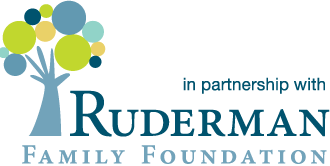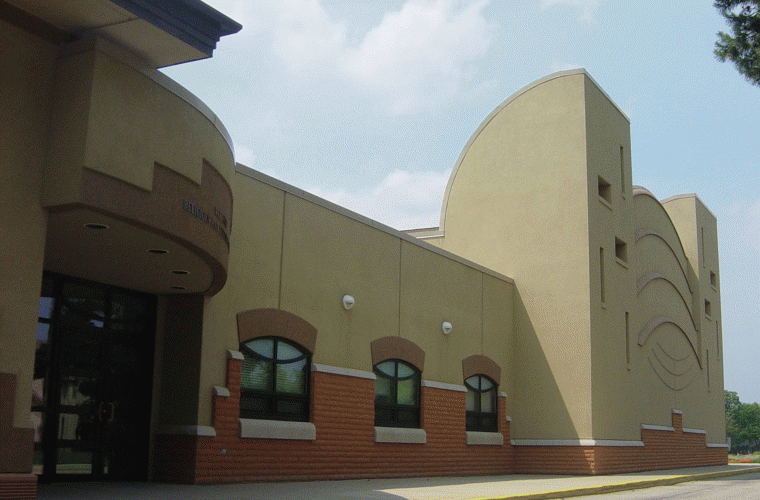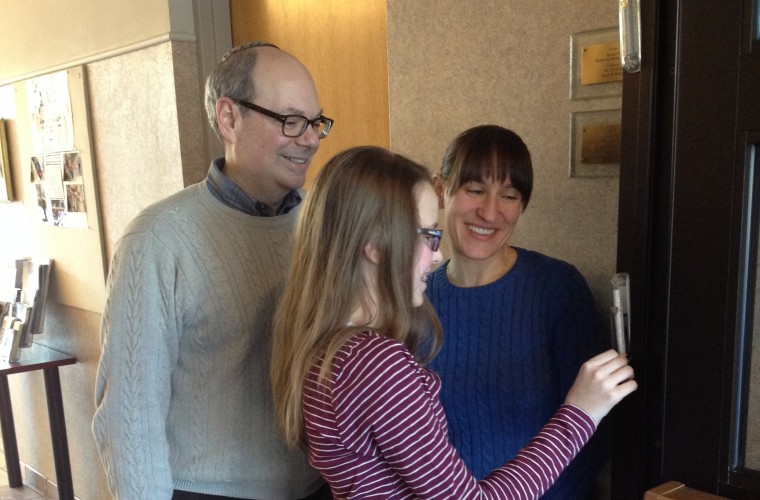Areas of Inclusion: Advocacy & Community Partnerships, Architectural & Physical Accommodations and Transportation, B’nai Mitzvah, Deafness, Early Childhood Education, General Inclusion, Mental Health, Religious School, and Worship
About the Congregation
3610 Dundee Rd.
Northbrook, IL 60062
Number of Congregants: 500
Contact Information
Inclusion Programming
Does this congregation have an inclusion committee?
Yes
Developing Our Program
Cantor Rudnick saw a need in the community to do more inclusive work. After speaking with Rabbi Leora Kaye at Congregation Rodeph Sholom in NYC, Cantor Rudnick saw the need for a team of people who have experience in the field. Cantor Rudnick contacted about 15 people in the community with a special education background (whether it's as a teacher, social worker, therapist, or a parent), and about 9 responded positively, and have been meeting, communicating, planning and implementing programs and positive changes since September 2014.
Number of people involved in the effort: 15
Involving People with Disabilities
We did not have a response from the parents (of both young and older children) when we asked for their opinions and suggestions, so we have made our accommodations and programs based on the education and experience of the people on the inclusion team.
Funding This Effort
So far, it has not required funding that could not be handled from a discretionary fund.
Helpful Agencies & Organizations
Currently, we are working with Keshet, a Jewish school for people with disabilities in the community. Keshet staff has come into our building and done presentations for our teachers and students. And, as of next school year, we will be sharing a Sunday school classroom with Keshet. It will be housed in TBE's building, but will utilize a Keshet teacher, TBE madrichim, and any students in the community, member or not, in grades 3-5 who may benefit from this classroom. The funding for this will come from religious school tuition and Keshet. We also utilize the URJ webinars, Hineinu, and The Guide to Synagogue Inclusion.
List of Helpful Agencies & Organizations
Spreading Awareness About Our Work
We have a great PR person at Temple Beth-El. He has helped us to write articles that get published in newspapers, and we use social media to spread the word as well. When we have a specific program scheduled, such as our visit from Congresswoman Tammy Duckworth to speak about the ADA at 25, we also call people in the community who would enjoy hearing the speaker or being a part of the program.
Process & Sharing
History, Materials & Processes that Guided Our Approach
Temple Beth-El has a rich history of including all people. When we began this journey, we started with small but important changes, such as lowering the mezuzot in the building, and worked our way to bigger programs, such as Shabbat and holiday programs for families with special needs. We continue to bring in dynamic speakers, such as JJ Hanley and Congresswoman Tammy Duckworth, and, as the community grows, so do our programs and implementations. It only takes a small, dedicated group to make a big difference. The first step is bringing together a group of like-minded individuals who care about making this important difference in the community, and letting it grow from there. And always use the great minds and materials that are already out there - none of us does this alone, and none of us has to reinvent the wheel; we just have to care enough to take the first step.
Evidence of Successful Inclusion Efforts
Since bringing a sign language interpreter to Temple Beth-El, we've had deaf families join us for services. Also, our students love watching our ASL interpreter; they copy everything she does and attempt to sign throughout the service. Additionally, at our first program, someone came who said that because her daughter is a non-verbal communicator but often makes noise, she hasn't felt comfortable bringing her to synagogue, but our program gave her a space to feel comfortable and a place to pray. Though we've had small numbers for our specific programs for families with special needs, these programs are growing and our guest speakers have brought in large numbers of people who are interested in learning about advocacy. Lastly, we have a joint Yom Ha'atzmaut program with Keshet coming up that will pair our fourth grade students with Keshet students, which should make some incredible memories and build some wonderful connections.
Evidence of Changing Attitudes
I think the biggest change has been that our population feels more equipped to welcome people with disabilities into the community. They are no longer afraid of not being able to make the temple accessible (even though we already have an elevator and a lift in our sanctuary), but rather see that it's easy to make the community a fully inclusive community. I also think that people are more open to the education they are receiving about inclusion, and, perhaps most importantly, stereotypes are being knocked down. Parents are more forthcoming with information about their children, which will help us create a safe and appropriate environment to provide a Jewish education for their children.
How We're Using and Sharing the Disabilities Inclusion Learning Center
Our senior staff, through Cantor Rudnick, already participates in the webinars and online learning site. Cantor Rudnick also shared the site with the Reform Cantors of Chicago, as well as the American Conference of Cantors. The study sessions help with transforming our community into a fully inclusive community.
The two study sessions created by Cantor Rudnick are available in the links below.
Links Related to Usage and Sharing
Future Inclusion Efforts
With the big project with Keshet coming up, we are hoping to create a religious school that is fully inclusive. Our hope is that the joint classroom will grow into 2-3 classrooms over the years, but more importantly we are hoping it will create an environment where those students can feel like a part of the Jewish community, while also creating kinder and more compassionate students, who will only benefit from learning and going to school with the students in the joint Temple Beth-El-Keshet classroom. We are also hoping that this classroom, and our partnership with ADA25, will help to make Temple Beth-El a hub for people on the north shore with disabilities.



